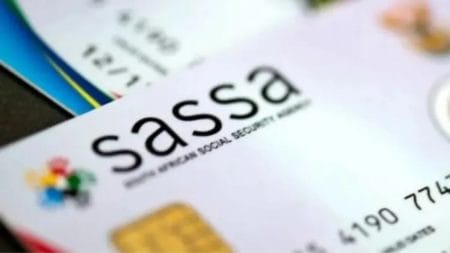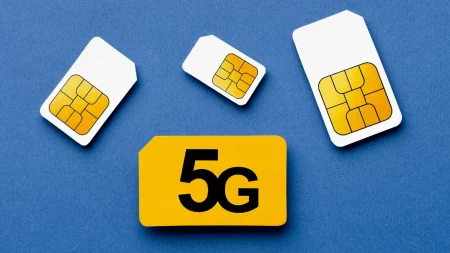Fraud targeting the most vulnerable members of society has become an increasing issue in South Africa, especially within the social grants system. The South African Social Security Agency (SASSA), responsible for providing essential financial support to those in need, faces ongoing challenges as dishonest individuals exploit the system for personal gain.
This article will guide you through the process of identifying, understanding, and how to report SASSA social grants fraud. By learning more about this, you can play an active role in ensuring that social grants go to those who truly deserve them.
What Is Social Grants Fraud?
SASSA defines fraud as any deliberate act intended to unlawfully benefit from the system. Some common types of social grants fraud include:
- False Information: Providing incorrect or false details to qualify for a grant. This includes lying about one’s income, the number of dependents, or health status.
- Double Dipping: Receiving more than one grant under false pretenses. For example, someone might claim two different types of grants or apply for the same grant multiple times under different names.
- Misuse of Funds: People collecting grants for individuals who have passed away or for children who no longer live with the grant recipient.
- Corrupt Officials: Cases where SASSA employees are involved in fraudulent activities, such as taking bribes or falsifying records to approve ineligible applicants.
How to Identify Social Grants Fraud
Spotting social grants fraud can be tricky, but here are some common signs to watch for:
- Unusual Withdrawal Patterns: If you notice someone withdrawing money from a grant they are no longer entitled to, such as continuing to receive child support when the child no longer lives with them.
- False Information on Applications: If you become aware that someone has lied on their grant application to qualify.
- Bribes or Suspicious Activity: If you hear about or witness a SASSA official asking for money in exchange for approval of a grant.
- Deceased Beneficiaries: Receiving grants on behalf of someone who has passed away is illegal.
If you suspect any of these activities, it’s important to report them immediately to prevent further abuse of the system.
Why You Should Report Fraud
Fraudulent activities within the SASSA system have far-reaching consequences. When people unlawfully take advantage of social grants, they steal resources meant for vulnerable individuals and families who genuinely rely on this financial aid to survive.
By reporting fraud, you help:
- Ensure Fairness: Fraudulent claims reduce the amount of money available to those who truly need it. Reporting ensures that the system remains fair.
- Protect Taxpayer Money: Social grants are funded by taxes, so reporting fraud helps protect public resources from being wasted.
- Reduce Corruption: Fraud reporting can deter corrupt practices, making SASSA more transparent and accountable.
How to Report SASSA Social Grants Fraud
If you suspect fraud or have information about fraudulent activities, SASSA has made it easy for you to report such cases. Here’s how you can do it:
1. SASSA Toll-Free Fraud Hotline
You can report fraud directly to SASSA by calling their toll-free fraud hotline at 0800 60 10 11. This is a confidential service, so your identity can remain anonymous if you prefer. The hotline operates 24/7, ensuring that you can report issues at any time.
2. Email Reporting
If you prefer to submit your report in writing, you can send an email to fraud@sassa.gov.za. In your email, provide as much detail as possible about the suspected fraud, including names, dates, and any evidence you might have.
3. Walk-in Reporting
You can also visit your nearest SASSA office to report fraud in person. Speak with a representative and provide them with any details related to the fraudulent activity. Make sure to request a case reference number for follow-up purposes.
4. Submit a Report Online
SASSA has an online reporting platform where you can fill out a form to report fraud. Visit their website, look for the “Report Fraud” section, and submit your report. This is a convenient way for those with internet access to report fraud without having to visit an office or make a call.
5. Other Channels
- South African Police Service (SAPS): If the fraud involves criminal elements, such as identity theft or forged documents, you can report it to your nearest police station. SAPS may investigate the matter in conjunction with SASSA.
- National Anti-Corruption Hotline: Managed by the Public Service Commission, this hotline allows you to report corruption within government agencies, including SASSA. You can call 0800 701 701.
Information to Include in Your Fraud Report
To ensure your fraud report is taken seriously and investigated properly, you should include as much information as possible. Here are the details that will be useful for the investigation:
- Name of the suspected fraudster: If you know the person’s name, include it in your report.
- Grant Type: Specify which grant is being abused (e.g., Child Support Grant, Disability Grant).
- Details of the Fraud: Describe the fraudulent activity, including when and where it occurred.
- Evidence: Any documents, emails, photos, or other evidence that supports your report.
- Contact Details (Optional): If you’re willing to provide your name and contact information, this can help investigators reach you for further information. However, this is not required if you wish to remain anonymous.
What Happens After You Report Fraud?
Once you’ve submitted a report, SASSA and other relevant authorities will begin an investigation. Depending on the complexity of the case, this can take some time. They may gather additional evidence, interview witnesses, and consult with law enforcement if necessary.
If the fraud is confirmed, SASSA can take several actions, including:
- Stopping the fraudulent grant: Payments may be halted immediately.
- Recovering stolen funds: In cases where fraudulent payments were made, SASSA may try to recover the money.
- Prosecution: The fraudster could face criminal charges, which may lead to fines, imprisonment, or both.
Protect Yourself from Becoming a Victim
Fraud isn’t just committed by individuals receiving grants – it can also be perpetrated by people who steal others’ personal information to apply for grants in their name. Here’s how to protect yourself from identity theft and grant fraud:
- Keep Your Personal Information Safe: Never share your ID number, grant details, or bank account information with anyone you don’t trust.
- Monitor Your Grant Payments: Regularly check your grant payments to make sure they are accurate. If you notice any discrepancies, report them to SASSA immediately.
- Be Wary of Scams: If anyone approaches you claiming they can help you apply for a grant for a fee, report them to SASSA. Applying for a grant is free of charge.
Read More: Common Issues with SASSA Identity Verification and Essential Troubleshooting Tips
SASSA social grants play a critical role in supporting South Africa’s most vulnerable citizens. By reporting fraud, you are not only helping protect the integrity of the system but also ensuring that resources are directed to those who need them most.
If you suspect any form of social grants fraud, don’t hesitate to use the reporting methods outlined in this guide. Every report makes a difference in the fight against fraud and corruption in South Africa.











